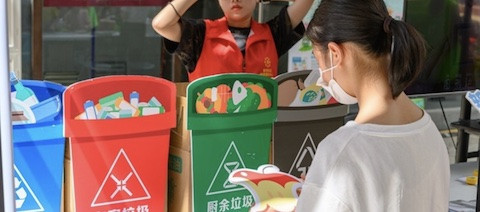The climate crisis, biodiversity loss and other environmental challenges we are currently facing show the need to change our current lifestyles, production and consumption habits.
To build a more sustainable world and achieve the necessary transformation, attitudes and behaviours need to change. Education is particularly relevant for achieving responsible sustainable consumption and production because it can provide people not only with the simple learning about these issues, but also empower people to take action and call for responsible practices from businesses and governments.
According to Vibeke Jensen, Director of the Division for Peace and Sustainable Development, at UNESCO Headquarters: “Sustainable living means understanding how our individual and collective life choices impact the world around us and finding ways for everyone to live better. To build a more sustainable world, knowledge, values, attitudes and behaviours need to change drastically at the individual and societal level. “
The sixth online workshop of the series on the transformative power of ESD for the world beyond COVID-19 focused on Sustainable Lifestyles, in particular how ESD help accelerate transformation towards more sustainable economies and societies and promote sustainable consumption and production.
Panelists focused on the following questions, sharing their views and experiences from different perspectives, including the individual level, schools and the private sector:
- What is the role of education, in particular Education for Sustainable Development, to promote alternative lifestyles/livelihoods in response to consumerism?
- How can ESD promote reflection on new lifestyles that combine well-being, quality of life, responsible production and respect for nature and other people?
Consuming sustainably and avoiding food waste
The panel discussions started with Palmiro Ocampo, chef and founder of the NGO Ccori Cocina Optima, from Peru. Palmiro who has founded 1087 restaurants in Lima, Peru, is a passionate advocate for sustainability, ending hunger and malnutrition. He is the presenter of ‘Cocina Con Causa’ (Kitchen with a cause), a Peruvian television series which taps into Peru’s gastronomic boom to make viewers aware of good nutrition for the development of the country’s people and its communities at large. By applying the concept of optimal cuisine, Palmiro has been helping to promote food optimization and to reduce food waste in Peru.
Promoting sustainable lifestyles through a whole school approach
Schools can promote sustainable lifestyles and support Education for Sustainable Development by applying the whole school approach. Bridget Ringdahl, who has been implementing the International Eco-Schools programme in South Africa for the past 17 years, joined the workshop and shared her experience as a project manager of the Water Explorer Programme and “Global Search for Sustainable Schools Project”.
Bridget explained how it is possible to teach about complex issues such as the climate crisis by implementing practical activities with the students, such as building solar ovens. This kind of activity allows going beyond the simple provision of knowledge and focusing on concrete solutions. The whole school approach also engages parents and the local communities within the school environment.
Engaging the private sector to produce sustainably
While people can adapt their personal lifestyles with new attitudes and by consuming differently, it is practically impossible to promote a structural change towards sustainability if the private sector does not adapt its offer and production.
During the workshop, Mr Yann Le Tallec, Director Government and Public Affairs in Europe, the Middle East and Africa from the LEGO Group shared how the company is transitioning to sustainability. By listening to societies’ demands, and in particular by reading letters sent by children, the company decided to start with sustainable packaging.
Another example from the private sector was brought by Ms Lisa Fiedler, the Head of VAUDE, a German company that makes functional and innovative products for mountain and biking sports activities. Beyond its business activities, the company also has an education component, the ‘Academy for sustainable business’, through which it helps other companies to join the transformation for a sustainable economy.
Promoting new values to establish new ways of living
Lifestyles as well as personal choices are influenced by culture and values shared by societies. According to Tom Green, Ecological economist and Senior Climate Policy Advisor at the David Suzuki Foundation, our economic and policy frameworks have for too long ignored ecological realities. By focusing too much on economic growth and wealth creation, this model is causing grave social injustices while it underestimates values such as empathy and sustainability:
“If Education for Sustainable Development is to succeed, it needs to equip learners to better understand the limitations of our economic models and of the skewed rules of market economies, to assess interlinkages between humans and ecosystems. People need to be equipped to examine how laws and regulations might be rewritten, how government budgets might be reallocated, and to participate and collaborate in the much-needed course correction.”
- More on UNESCO’s work in education for sustainable development


